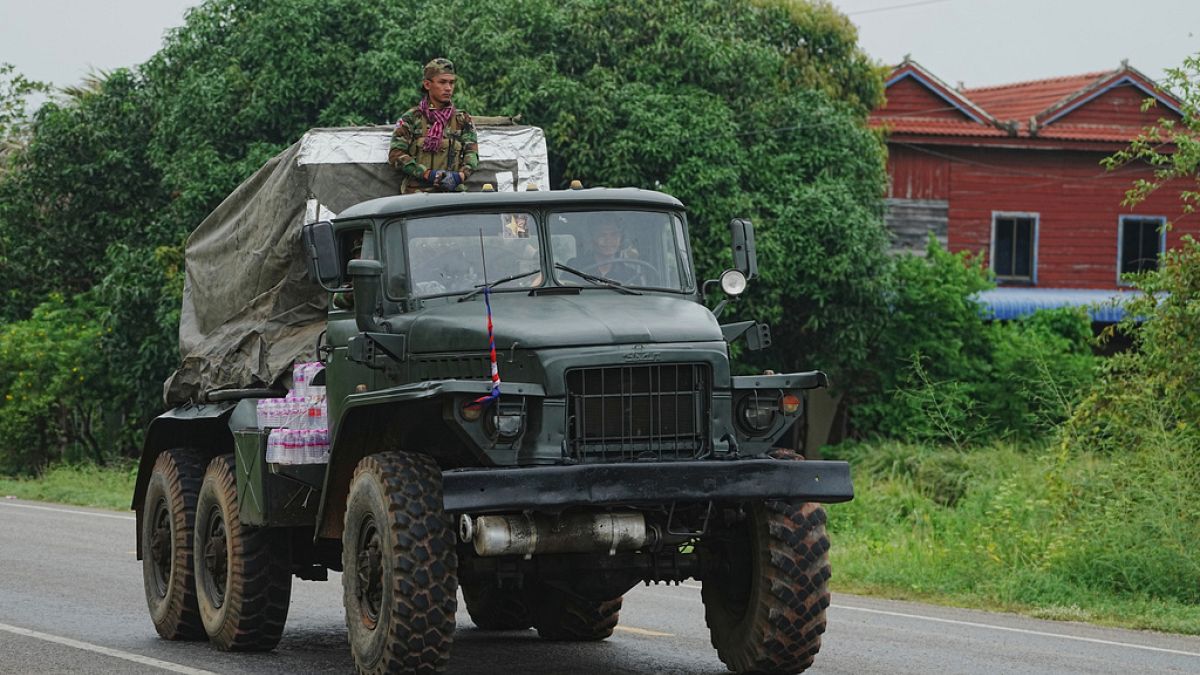

In a world seeking calm amidst conflict, recent diplomatic efforts offer a glimmer of hope for resolution and peace. In Southeast Asia, hopes for a truce have been rekindled as Thailand and Cambodia have agreed to meet in Malaysia for ceasefire discussions. This move follows four intense days of border altercations that resulted in tragic loss of life. With Malaysia stepping up as a mediator, there is an opportunity for both nations to work towards ending the violence and restoring harmony at their shared borders.
Meanwhile, in the Middle East, Israel has unveiled plans to establish humanitarian corridors in Gaza, responding to dire famine warnings. While combat operations against Hamas persist, the Israeli military’s initiative to allow humanitarian aid aims to alleviate the challenging conditions for civilians. This decision reflects an intent to balance security concerns with humanitarian needs, marking a step towards addressing the humanitarian crisis in the region.
As the situation in Gaza continues to garner international attention, France, Germany, and the UK have reiterated their call for a ceasefire. In a coordinated effort underscored by phone discussions, the leaders of these nations highlighted their shared concern over the escalating situation in Gaza and the urgent need for peace. This diplomatic pressure underscores a continuous commitment to achieving a resolution that ends violence and addresses the human suffering on the ground.
Israeli Prime Minister Benjamin Netanyahu has indicated that Israel is considering alternatives to traditional ceasefire talks with Hamas. The protracted negotiations, previously hosted in Qatar, have yet to yield significant breakthroughs, leading Israel to explore other pathways to peace. This stance reflects the complexity of the conflict, driving leaders to reassess strategies and potential solutions to facilitate lasting peace.
In a broader context, diplomatic discussions aren’t limited to the Middle East. Seizing on the theme of global engagement, Iran and the E3 nations—comprising France, Germany, and the UK—have agreed to resume nuclear talks after finding no resolution in previous rounds held in Istanbul. The E3 nations reaffirmed the possibility of utilizing the “snapback” mechanism, should Iran fail to cooperate with the International Atomic Energy Agency (IAEA). This ongoing dialogue underscores the international community’s search for a diplomatic course amidst challenging geopolitical landscapes.
Adding a new dimension to the diplomatic initiatives, UK Prime Minister Keir Starmer has expressed intentions to engage with former US President Donald Trump to rekindle American involvement in the Gaza peace process. Positioned against a backdrop of rising humanitarian concerns, Starmer aims to persuade Trump to support efforts in reviving ceasefire discussions between Israel and Hamas, previously suspended after the withdrawal of US and Israeli negotiators from Qatar. This appeal illustrates a proactive approach by global leaders to unite international efforts towards sustainable solutions.
As these developments unfold, they hint at potential pathways to peace across regions beset by conflict. While complexities abound, and no immediate solutions appear on the horizon, the active pursuit of dialogues and negotiations reveals a shared international desire to transcend violence and embrace peace. All eyes remain on these transformative talks, their outcomes holding the promise of easing strife and fostering understanding in this interconnected world.
Source: {link}
